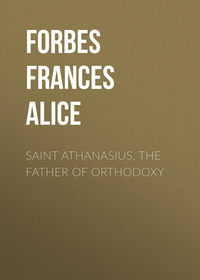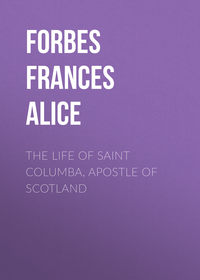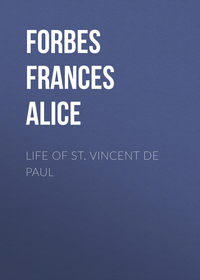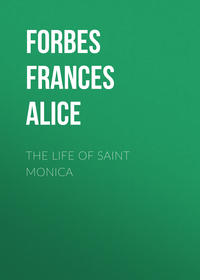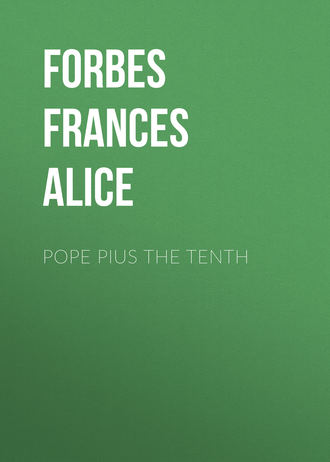 полная версия
полная версияPope Pius the Tenth
He spent Holy Week and Easter that year with his mother and sisters at Riese. It was a double festival for his family and the friends of his childhood who crowded round him. Back again at Treviso, where he had spent so many happy days, he had not the courage to face a public farewell. "Read them this letter at dinner," he said to the rector of the seminary; "tell them I keep them all in my heart, and that they must pray for me." Then, slipping unnoticed out of the house, he went to the carriage ordered to wait for him at a little distance, and so set out for Mantua.
At the station a large crowd had gathered to receive him, priests, people, representatives of the noble families of the place, and of the divers associations of town and country. Outside the bishop's house, in the great square of St. Peter, a multitude of townspeople were awaiting his arrival. "We want to see our bishop," they cried tumultuously, and their desire was immediately satisfied. Stepping out into the balcony which overlooked the square, their new pastor greeted them with warm affection and gave them his blessing.
Mantua, say the Italians, has always been a fighting city, and in 1885 it was still true to its reputation. Of Etruscan origin, and the birthplace of Virgil and Sordello, throughout the fifteenth and sixteenth centuries its see had been usually held by members of the famous family of Gonzaga. The task which lay before the new bishop was no easy one. There were divisions between clergy and people; the seminary was almost empty of students; many parishes were without a priest; no synod had been held within the memory of man. The spirit in which Monsignor Sarto took up his new work showed itself in his first pastoral letter to his flock.
"I shall spare myself neither care nor labour nor watchfulness for the salvation of souls. My hope is in Christ, who strengthens the weakest by His divine help; I can do all in Him who strengtheneth me! His power is infinite, and if I lean on Him it will be mine; His wisdom is infinite, and if I look to Him for counsel I shall not be deceived; His goodness is infinite, and if my trust is stayed on Him I shall not be abandoned. Hope unites me to God and Him to me. Although I know I am not sufficient for the burden, my strength is in Him. For the salvation of others I must bear weariness, face dangers, suffer offences, confront storms, fight against evil. He is my hope."
His first care was the seminary, and in a little more than a year he was able to write to a friend: "I have a hundred and forty-seven boarders, young men with healthy appetites who can digest anything and everything."
The scarcity of priests in the country villages was indeed disastrous. The bishop lost no time in convoking a synod. "If people do not hear of God, of the sacraments, and of eternal life," he said to the priests assembled, "they will soon lose every good feeling, both civil and social. No difficulty is insurmountable; nothing is impossible to those who will and those who love." The difficulty that at that moment seemed most insurmountable was the want of money. The hundred and forty-seven young men required feeding, and the seminary was poor. The bishop sold the few fields at Riese that were all he possessed to meet the immediate need, and others, stirred by his zeal and eloquence, came forward to help him.
A thorough visitation of the diocese enabled Monsignor Sarto to understand its needs more fully. He liked to hear both sides of every question, and asked everyone to be perfectly frank with him in discussing both good and evil. "Joy shared is joy doubled," he would say, "and grief imparted becomes easier to bear." An old man who came one day was received with such kindness that, concluding he had to do with the bishop's secretary, he talked to him at great length about a little personal affair. "Can I believe you?" he asked wistfully, as the kind priest assured him that all would be right.
"What!" was the answer, "can you not trust your bishop?"
In order that the pastoral visitation might be no burden on the country priests, whose life was a continual struggle with poverty, he ordered that no preparations whatever were to be made for his reception. Nothing extra was to be provided; he would share with them what they had. Instead of a demonstration at the station, he begged that the people might gather in the churches for Mass and communion. "That is the greatest honour they can do me," he said; "that will be my greatest reward. I desire no useless pomp, but the salvation of souls."
One of his first acts was to write to the mayor of the city to ask his assistance, thus holding out the right hand of fellowship to the civil authority, and enlisting it in his behalf. "Your new bishop," ran the letter, "poor in everything else, but rich in love for his flock, has no other object than to work for the salvation of souls and to form among you one family of friends and brothers." The question of church and state, then a thorny one in Italy, had not of late years found a happy solution in Mantua. This gracious act of the new bishop was the first step towards a better understanding. He interested himself much in social questions; and it was through his efforts that the first Italian social congress was held at Piacenza in 1890. He understood the power of the press, and started a flourishing paper called the Citizen of Mantua.
As at Tombolo, at Salzano, and at Treviso, so at Mantua was the teaching of Christian doctrine one of the bishop's first cares. Schools and confraternities were established everywhere throughout the diocese, and on his pastoral visits he would catechize the children himself to see that they were properly instructed in the faith. Parents who would not allow their children to attend were threatened with severe penalties; on this subject the bishop, so gentle towards sorrow and suffering, was stern and inflexible. The children's souls were at stake, he said, and he would not see their birthright withheld from them. He insisted that church music should be decorous and religious, and that the Gregorian chant should be used when possible.
The bishop's day was a strenuous one. At five he celebrated Mass in his private chapel, and, his thanksgiving ended, went straight to his confessional in the cathedral. After breakfast of black coffee and a mouthful of bread, he began the oft-interrupted day's work, for he would have no set hours for receiving visits. Those who wanted him were admitted at any hour, and received with the most genial kindness. "No matter with what faces they go in," it was said of his visitors, "they always come out smiling – that is, unless they have done something dreadful." On these occasions Bishop Sarto could scorch the offender with words of fire, but at the first sign of repentance he was ready to forgive, to lift up the sinner and set him on the right road. Towards evening he would take a walk in the town, speaking familiarly to all he met. At nine he said the rosary with his household, after which he worked or studied till midnight.
St. Anselm of Lucca, friend of Gregory VII, and, like him, inspired with holy zeal for the reform of the clergy, is the patron saint of Mantua. In 1886 his centenary was celebrated with great splendour in the cathedral where he lies buried. Nor did the tercentenary of St. Aloysius Gonzaga, whose family was one of Mantua's olden glories, pass without special honour. A stirring address was given by the bishop himself to the young men, of whom St. Aloysius was the special patron.
"Religion has no fear of science," said Monsignor Sarto, attacking one of the most popular fallacies of the day; "Christianity does not tremble before discussion, but before ignorance. Tertullian proclaimed as much to the emperors of Rome. 'One thing,' he said, 'our faith demands: not to be condemned before it be known,' and it is this that I ask of you, young men, not to condemn religion before you have studied it." Pilgrimages were inaugurated to the birthplace of the saint at Castiglione; a mission was preached to the boys and young men of the district; processions were held. The celebration of the festival did a great deal of good in the diocese, impressing as it did upon the people the fact that the best way to honour their saints was by following in their footsteps.
In 1887 the sacerdotal jubilee of Pope Leo XIII was celebrated throughout the world. The words in which the Bishop of Mantua announced the approaching celebration to his flock found an echo in every Catholic heart. "The moment has come," he said, "to prove to the great Vicar of Christ our unchanging affection and fidelity. For us Leo XIII is the guardian of the Holy Scriptures, the interpreter of the doctrine of Jesus Christ, the supreme dispenser of the treasures of the Church, the head of the Catholic religion, the chief shepherd of souls, the infallible teacher, the secure guide, who directs us on our way through a world wrapped in darkness and the shadow of death. All the strength of the Church is in the pope; all the foundations of our faith are based on the successor of Peter. Those who wish her ill assault the papacy in every possible way; they cut themselves adrift from the Church, and try their best to make the pope an object of hatred and contempt. The more they endeavour to weaken our faith and our attachment to the head of the Church, the more closely let us draw to him through the public testimony of our faith, our obedience and our veneration."
The fame of the zeal and piety of the Bishop of Mantua soon spread beyond the bounds of his own diocese. His conspicuous merit and ability had not escaped the vigilant eye of Leo XIII, who had marked him out for higher dignity still. "If the Mantuans do not love their new bishop," he had said on the appointment of Monsignor Sarto, "they will love no one."
But the Mantuans were not so hard of heart, and the quarrelsome city, in the hands of one who, like his Master, was meek and humble of heart, had become a city of peace.
IV
PATRIARCH OF VENICE
In the consistory of June 12, 1893, Pope Leo XIII named Bishop Sarto cardinal of the Holy Roman Church, and three days later appointed him archbishop and patriarch of Venice.2 On June 7 the bishop had set out for Rome, and on the 15th, in the presence of representatives from Venice, Treviso, Mantua and Riese, he received the cardinal's hat, with the title of San Bernardo alle Terme. The wisdom and modesty of the new cardinal, added to his charm of manner, won him many friends during his stay in Rome. For sixteen months Cardinal Sarto was unable to take possession of his see; for the Italian government, having claimed the right to nominate the patriarch, refused to sanction his appointment; and the municipality of Venice, which was largely anti-clerical, was only too glad of a pretext to show hostility to the Church.
The cardinal's first visit after his return from Rome was to his mother at Riese. At one of the stations on the way thither he was met by a deputation of his old friends the Tombolani, headed by their parish priest. Quite forgetting in their joy the respect due to a prince of the Church, the simple peasants rushed at their old curate, shouting vociferously, "Don Giuseppe! Don Giuseppe!" The cardinal, pleased with their enthusiasm, laughed and greeted his old friends with much affection.
All the bells were ringing in Riese as he entered it; all the people, young and old, were there to meet him and to escort him, the centre of a laughing, weeping, shouting crowd, to the church. Everyone was at Benediction, and when old friends had been greeted and good wishes given and received, the greatest joy of all was still to come – the meeting in the little home of his childhood, where Margherita had her son at last to herself. Next morning the cardinal preached to the people, thanking them for their welcome, and speaking of all the precious memories that centred for him round the altar where he had made his first communion and offered his first Mass. The day was spent in receiving visits; there was a kind word of greeting for new friends, and a still kinder word of remembrance for the old.
Early next day, having vested in his scarlet cappa magna, Cardinal Sarto went to his mother's room and, standing beside her bed, showed himself in all the glory of the "sacred purple." Margherita wept with joy; but there were tears of sorrow before night. It was the last day at Riese, and although neither of them knew it, that parting kiss was to be the last on this side of the grave. The old mother clung to her son with a passionate tenderness as he clasped her frail figure in his arms. She was eighty years old, and at that age partings are hard. A few months later the sorrowful news of her death reached the cardinal, now back at Mantua and busy with his episcopal duties. The joy of the last meeting and the grief of the last parting had been too much for the old mother's heart.
In September 1894 the government gave way at last, and the exequatur or confirmation of the papal bull arrived. A few weeks later Cardinal Sarto pontificated for the last time in the cathedral of Mantua, and, bidding a loving farewell to the diocese where he had laboured so long and so strenuously, set out for Venice.
For years a government hostile to religion had waged relentless war on the Church in Italy. Laws had been passed forbidding religious teaching in the schools; charitable works had been "laicized": in other words, the goods of religious fraternities and charitable societies had been confiscated by the state, the revenues of bishoprics had been refused to prelates appointed by the pope, and rights of patronage had been claimed by the government over many sees. The result was soon to be seen in a growing materialism in all ranks of society.
"God is driven out of politics by this theory of the separation of church and state," wrote the new patriarch in his first letter to his flock. "He is driven out of learning by systematized doubt; from art by the degrading influence of realism; from law by a morality which is guided by the senses alone; from the schools by the abolition of religious instruction; from Christian marriage, which they want to deprive of the grace of the sacrament; from the cottage of the poor peasant, who disdains the help of Him who alone can make his hard life bearable; from the palaces of the rich, who no longer fear the eternal Judge who will one day ask from them an account of their stewardship… We must fight this great contemporary error, the enthronement of man in the place of God. The solution of this, as of all other problems, lies in the Church and the teaching of the Gospel."
The Venetian people were determined to show their new pastor that the representatives of the government were not the representatives of popular feeling. Amidst the decorations which adorned the town, the municipal buildings alone remained untouched; amongst the crowds that gathered to meet the patriarch, the members of the municipality were conspicuously absent. The people resolved on an ovation the like of which had never before been seen. As the patriarch entered the launch that had been sent to receive him, the bells of all the towers in the City of the Sea rang out a joyous welcome; from every balcony and bridge came bursts of cheering, while a closely packed and enthusiastic crowd occupied every available space along the route. At the prow of the launch stood Cardinal Sarto in all the splendour of scarlet robes, a noble manly figure, full of dignity and sweetness, blessing the crowd with the winning smile that was characteristic of him.
On the following morning in St. Mark's, having listened to the congratulatory speeches addressed to him, the cardinal turned to the people, and in the breathless silence that followed, his clear voice rang out to the farthest recesses of the cathedral.
"I should be ashamed," he said, "to be the object of such honour, did I not know that it is offered, not to my poor person, but to Jesus Christ, whose representative I am and in whose name I come among you. You wish to show that you see in me your bishop, your father, and your patriarch, and I am bound to love you in return. When Jesus Christ gave to St. Peter the charge of His sheep and of His lambs, He asked him three times for the assurance of his love, thus giving him to understand that love is the greatest necessity for a shepherd of souls. From this moment I gather you all into my heart; I love you with a strong and supernatural love, desiring but the good of your souls. For you are all my family – priests, citizens, great and small, rich and poor. My heart and my love are yours, and from you I ask nothing but the same love in return. My only desire is that you should say of me, 'Our patriarch is a man of upright intention, who holds high the banner of our Lord Jesus Christ, who seeks only to defend the truth and to do good.' And since God has raised me, a son of the people, to this high dignity, He will certainly give me the strength and the grace necessary for so great a mission. It is the duty of a bishop to proclaim God's truth, to interpret it to the people; and I look upon it as a holy duty to speak frankly in its defence. I am ready to make any sacrifice for the salvation of souls. You who have zeal for the things of God, work with me, help me, and God will give us the grace that is necessary to achieve our ends."
The Venetians were deeply moved; they felt that their new patriarch was a truly apostolic man, and the impression only gathered strength as time went on. The doors of his house were always open to anyone, rich or poor, who wished to speak to the patriarch; the troubles of the least of his flock were his own. He threw himself with all his heart into every movement for the bettering of the condition of the poor, often settling, by his tact and zeal, bitter disputes between capital and labour. The municipality was, as we have seen, anti-clerical. He rallied the Catholic forces with such success that within a year they prevailed. For he knew the way to obtain his ends; and while throwing into the struggle the whole influence of his forceful personality, he inaugurated throughout the diocese, before and during the elections, a regular crusade of prayer. Wherever he went, peace and reconciliation followed. "Possessed of much sweetness and charm of manner," wrote one who knew him, "and uniting a certain stateliness and dignity with a graceful address and a delightful sense of humour, he preached the gospel of personal culture, putting cleanliness next to godliness, and good manners next to good morals, himself setting the example in these things."
As at Mantua and at Treviso, he insisted strongly on religious instruction for all classes. Ignorance of Christian teaching, he said, was the great defect of the times, and very many evils sprang from this alone. Many who were learned in secular sciences were deplorably ignorant of the truths of their faith. Preachers were apt to take too much for granted that their congregations were well instructed, and on this account their sermons bore little fruit.
"There is too much preaching and too little teaching," said the patriarch; "put aside these flowery and elaborate discourses, and preach to the people plainly and simply on the eternal truths of faith and on the teaching of the Gospel. Think of the good of souls rather than of the impression you are making. The people are thirsting for truth; give them what they need for their souls' health, for this is the first duty of a priest."
He insisted on religious instruction for adults as well as children, but reminded his priests that all these things require study, preparation and prayer. As nothing pertaining to the dignity of the priesthood was small in his eyes, he insisted that the clergy should be tidy in dress and scrupulously clean. He mixed freely with the people, often stopping to talk to those he met in friendly and familiar fashion. The Venetians loved him dearly. "There goes our dear patriarch," they would say, "intent on some good. God bless him and the mother who bore him." His home life was as simple as ever, and his charities as great. His two sisters and his niece kept house for him. His steward had to put him on an allowance, so unmeasured was his almsgiving, and it was said that the episcopal ring of the chief pastor of Venice was more than once in pawn.
"Times are changed," said an old friend who was visiting him, as the cardinal pulled out a gold watch from his pocket. "Do you remember the silver one which was always going to the pawnbroker at Tombolo?"
The patriarch looked ruefully at the watch. "The person who gave it me," he said, laughing, "had the unfortunate inspiration to get the patriarchal arms engraved on the back!"
"I am so sorry to have to send you such a wretched sum," he wrote to a priest in Mantua who had applied to him for money for some charity; "I was poor at Mantua, but here I am a perfect beggar. Take what I send in the same spirit, and forgive me."
The diocesan visitation begun soon after his arrival in Venice was no small affair, and took several months to accomplish. "We appreciate greatly the zeal and charity of our patriarch," said the people, "but we are praying that he may sometimes think a little of himself; for such men are precious, and we want to keep him as long as we can." As at Mantua, he begged that there might be as little pomp and ceremony as possible, and that no extraordinary preparations might be made in the different parishes for his arrival. With quick intuition he saw at a glance exactly what was needed in the way of reform or development, and at the synod which followed showed a perfect knowledge of the requirements of the archdiocese.
The eucharistic congress in Venice which took place in August, 1898, was prompted and carried out by the zeal and energy of Patriarch Sarto, who spared no pains to make it a success. Inaugurated as a reparation for the many sacrileges offered to Jesus Christ in the Blessed Sacrament, its aim was to stimulate the faith of the people and to arouse in them a greater love for this mystery of their faith. Each parish was to take its part in the celebration, the whole congress being carefully organized by the cardinal himself. "The heart of man," he said, "is inconstant in good; it grows cold and careless if it is not stirred up to action from time to time." Conferences were held and missions preached in many of the Venetian churches to prepare the people. The bells of all the city rang out to announce the beginning of the congress, which opened with a magnificent procession to St. Mark's. The inaugural address was preached by Cardinal Svampa, Archbishop of Bologna; and on the following day the patriarch himself addressed the people.
"Jesus is our king," he said, "and we delight to honour as our king Him whom the world dishonours and disowns. We, His true subjects, offer our true homage to Christ the King; the warmth of our love shall be greater than the coldness of the world. We meet around the tabernacle where Jesus remains in our midst until the end of time; there faith springs up anew in our hearts, while the fire of His charity – the very fire that He came to cast upon the earth – burns within us. The object of this eucharistic congress is to make reparation to our Lord Jesus Christ for the insults offered to Him in the Blessed Sacrament; to pray that His thoughts may be in our minds, His charity in our institutions, His justice in our laws, His worship in our religion, His life in our lives."
On the afternoon of the third day the final procession was one of the most magnificent of all the magnificent pageants ever seen in the City of the Sea, even in the days when the doge went in solemn state to wed the Adriatic. Cardinal Svampa carried the monstrance, while before and after him went cardinals in scarlet, bishops in cope and mitre, religious orders, the confraternities with their banners and insignia, hierarchs and priests of the Byzantine and Armenian rites in their vestments. "Splendid as a dream," wrote one who was present, "it seemed as if the very Greek saints had stepped out of the mosaics in the cathedral to be present at the solemn passage of Christ in their midst."
Cardinal Sarto had not been long at Venice before he determined on a thorough reform of church music. He summoned Don Lorenzo Perosi, a young cleric whom he had known at Mantua and a skilled musician. Music, said the patriarch, was intended to excite the faithful to devotion and to help them to pray: the music in vogue did neither. The fearful and wonderful performances of string orchestras, dear to the hearts of many, were banned, as was the use of drums, trumpets, tambourines and whistles. No instrument but the organ was to be used in the churches, and even that was to be subordinate. The words of the Mass were to be sung to the Gregorian chant with solemnity and dignity, and by men and boys alone. That the change was not acceptable in all quarters was hardly to be wondered at. The operatic efforts of loud-voiced ladies singing the O Salutaris during Mass to the air of the Serenade from Faust, or a Creed that was like the Brigands' Chorus from an opera, still found many admirers.


